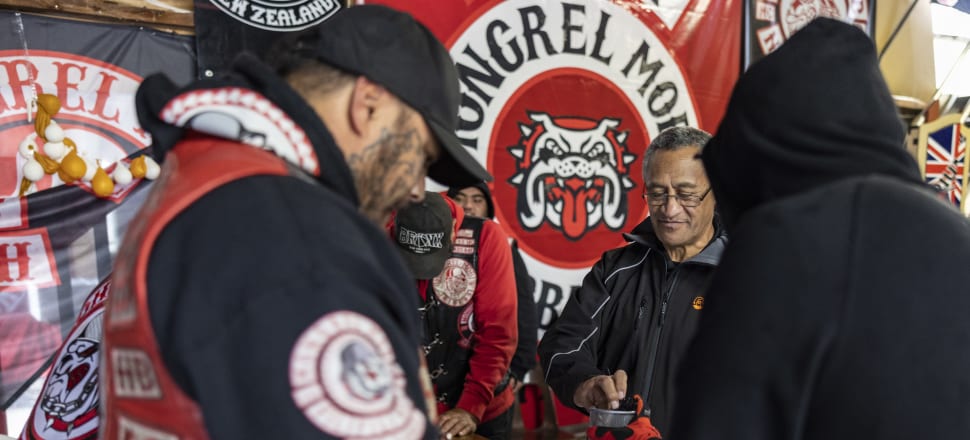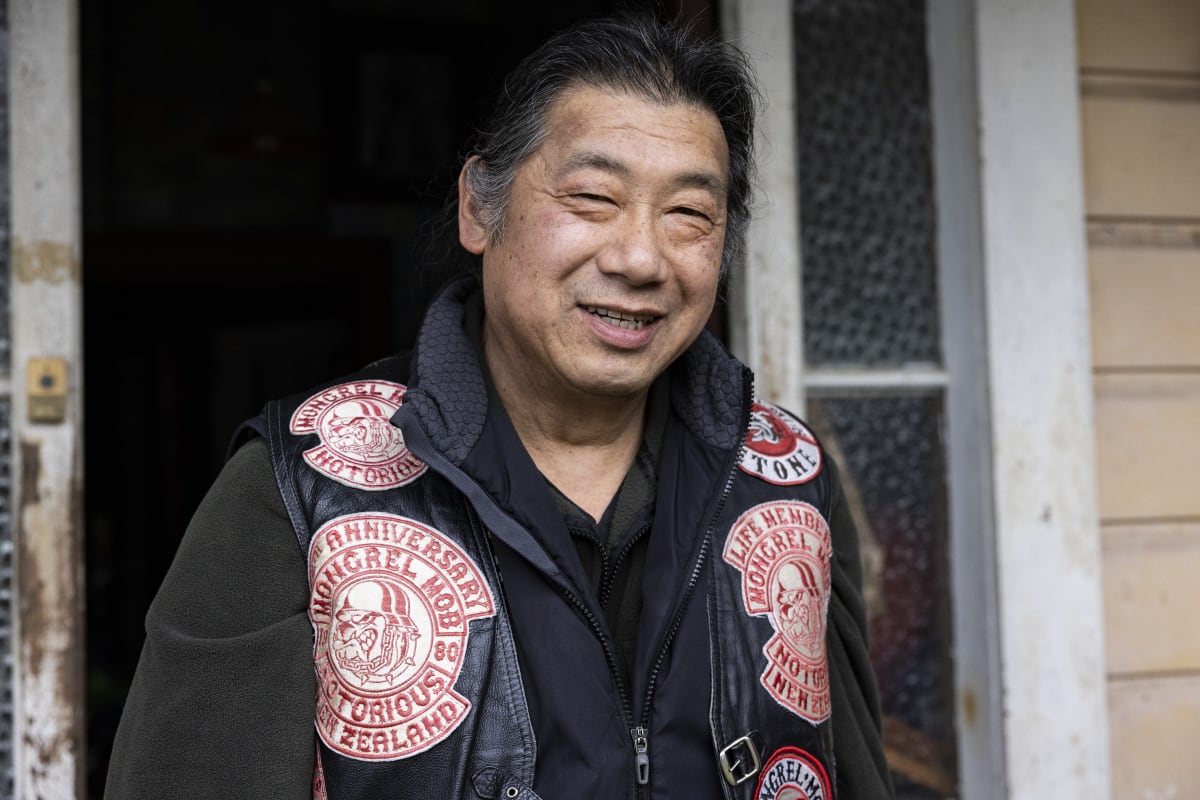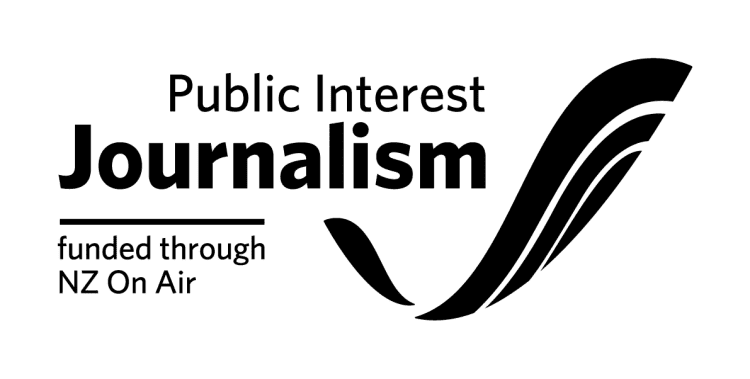
More than 442,000 people who are eligible to vote are not registered - a population larger than Hamilton, Rotorua and Tauranga combined. Many of them are from marginalised communities. Many are Māori. Aaron Smale runs the numbers and asks - could Māori be more politically powerful if they were to all go on the general roll?
Analysis: He looked at the form blankly. He couldn’t read it, nor could he fill it in because he couldn’t write. So he needed help from his mates, patched Mongrel Mob members, standing around a bar-leaner at the pad. He could ask them for help because he knew and trusted them. He’d be too embarrassed and ashamed to ask anyone outside his circle. But most of those within his circle have not been inclined to register in the past either.
That might be about to change.
The gang members were gathered in Takapau in Hawkes Bay to hear from a couple of staff from the Electoral Commission on how to register and how to vote. Most of them had never registered before, let alone voted. Yet these men and their families were the centre of attention in a week that was focused on politicians arguing about how to respond to their very existence.
Many gang members refer to themselves as the one-percenters, signifying their alienation from the rest of society.
But this metaphorical one percent who are alienated from political participation are symptomatic of a much larger percentage. They are part of larger communities in places like Flaxmere, Ōpōtiki, Kaihohe or Otara, communities that are often sidelined in the political conversation. Or they’re used by political parties trying to grab the headlines and attract some Pākeha voters who are inclined to respond to dog-whistling, which can be a campaign based on fear and rhetoric with little in the way of constructive policy.
According to official figures approximately 11.5 percent of eligible voters are not registered on electoral rolls, a figure that amounts to more than 440,000 New Zealand citizens. The estimated eligible voting population is 3,871,418. The actual total enrolled is 3,428,559, which means 88.5 percent of eligible voters are enrolled. There are approximately 442,859 eligible voters who are not on the roll.
This group of New Zealanders who are not represented in Parliament is larger than the cities of Hamilton, Rotorua and Tauranga combined. The group is also larger than several of the biggest iwi combined.
By its very nature this group of citizens is somewhat invisible and an unknown.
But it is highly likely to include some of the most marginalised communities who have disengaged, sometimes over generations, because their voices are ignored and they don't feel like they have a stake in society. In many ways they are both invisible and highly visible - they can be ignored as a matter of course but can also often be attacked or portrayed negatively in political discourse and media coverage. And many are Māori.
The official numbers probably mask the reality of even higher numbers - just 68 percent of Māori completed the last Census for which figures are available.

It is communities at this end of the voting spectrum that Mongrel Mob member Harry Tam is trying to convince to exercise their voting rights to make sure they are heard in debates on issues that affect their lives, instead of letting others determine what they government will impose on them. But he said the major parties have nothing to offer the communities that gangs come from and policies are narrowly focused on punitive measures that do nothing to address the economic circumstances of those communities.
"The thing is, there's nothing for them to vote for. Registering is one thing, but having something to vote for is the other thing. If you take a look at our community there is absolutely nothing to vote for. When you're constantly hammered and bashed in the media by both sides, why would you?"
Prof Maria Bargh, lecturer in politics and Māori studies at Victoria University and deputy chair of the Independent Electoral Review, says the panel is trying to find solutions to increase the number of registrations.
"Changes in recent years have sought to make enrolment as easy as possible. For example, people can now enrol and vote on the same day, including on election day. But even though enrolment is compulsory in New Zealand, some people still haven’t taken that step," Bargh said.
"One suggestion we’ve heard to improve enrolment rates is automatic enrolment. Automatic enrolment would allow government officials to enrol people, with no action required on their part, using information they have provided to the government for other reasons. While this approach might help to close the enrolment gap, we haven’t recommended it. We were concerned about using people’s personal data in this way without their knowledge or consent. It would also raise issues for how people of Māori descent would be able to choose whether to register on the general or Māori roll.
"In our review, we’re considering the bigger question of how we can encourage voter participation more broadly. We think communities have an important role to play in this space. Community organisations are often well placed to reach people who may not be motivated or know how to get involved in elections in ways that feel relevant and meaningful to them.
"We’re proposing funding for community-led education and engagement initiatives that could include things like enrolment drives in local communities. We’ve also recommended funding for political parties and candidates to reach Māori communities more effectively as part of their campaigns."
However, even those Māori who are registered to vote and politically engaged have their voting power split between the Māori roll and the general roll. Māori voters who are registered total just over half a million.
Those registered on the Māori roll number 261,000 and they get to vote in seven Māori seats. Then there are just over 250,000 Māori voters on the general roll who vote in general electorate seats.
But does this split and the high number of non-registered Māori undermine the significance of the Māori vote? To frame it hypothetically, if all Māori were registered and if all Māori went on the general roll it would upend the political calculus of a number of general seats as it could bring the Māori percentage of voters up to nearly a quarter of the eligible voters.
For example, the Tukituki seat, which takes in Hastings and a chunk of southern Hawkes Bay, was a marginal seat at the last election and was won by Anna Lorck by 1590 votes ahead of National's Laurence Yule. When you break down the figures and look at the composition of the electorate, that thin margin means that even a slight increase in Māori voters could be the deciding factor in which party wins that seat.
There are an estimated 67,000 eligible voters within the boundaries of the Tukituki seat. Around 85.3 percent are registered, but that leaves approximately 9800 potential voters that are not registered.
In the Tukituki electorate 43,000 of the registered voters are non-Māori. The total of Māori voters within this electorate’s boundaries is approximately 14,000, split between 5700 on the general roll and 8200 on the Māori roll.
In a hypothetical scenario where all registered Māori voters went on the general roll within the boundaries of the Tukituki seat, Māori would go from being 13 percent of the vote to 19 percent of the vote.
That’s just counting those that are currently registered. The 9800 that aren’t registered are an unknown by definition. But there’s a good chance this group are marginalised by a number of measures, which makes it likely that a high proportion of them are Māori.
A similar picture emerges in the neighbouring Napier seat, where there are a total of around 63,000 eligible voters with around 8000 not registered (87.3 percent registered)
In the Napier seat 42,000 of those on the general roll are non-Māori. Within the Napier boundaries there are approximately 13,000 Māori voters split between 5800 on the general roll and 7200 on the Māori roll.
These statistical contours are similar in other regions. In the general seat of East Coast - which stretches from Eastern Bay of Plenty around the East Coast to Gisborne - there are an estimated 84,000 eligible voters but approximately 11,000 are not registered. The total of non-Māori on the general roll is 38,500. The total of registered Māori voters is approximately 34,000, split between 11,900 on the general roll and 22,500 on the Māori roll. If all eligible voters were registered then it’s likely that Māori would make up the majority of voters within the boundaries of the East Coast electorate. Currently, the majority of those registered are on the Māori roll.
The Northland seat is another example of a significant Māori voting population being split, which somewhat nullifies its potential influence over the general seat.
The total for eligible voters in Northland is 82,500 but 84 percent (69,000) are registered, with an estimated 13,000 not registered.
There are 44,299 registered non-Māori voters, while there are approximately 25,000 Māori voters split between 16,000 on the Māori roll and 9000 on the general roll.
What is also stark in the Northland figures is the difference for age groups. There are nearly 16,000 eligible non-Māori voters in this electorate who are over the age of 70 and 98 percent of them are registered to vote.
However, in the Northland seat there are 7124 eligible voters in the 18-24 age bracket, but only 60 percent of them are registered. Between 70 and 80 percent of eligible voters between the ages of 25- 49 are registered. It is only the 50-plus age group that have more than 80 percent of eligible voters registered.
Given Māori die earlier but also have a younger population on average, it’s fair to assume that the patterns evident in these two ends of the age spectrum correspond to a contrast between Māori and Pākeha voters.
Are political parties responding to these changing realities? Or are they still working on the basic assumption that Pākehā are the majority, Māori are a minority? Are the election strategies of the major parties based on attracting Pākehā voters at the expense of Māori?
Currently National and ACT seek mileage in directly and indirectly attacking issues involving Māori, especially if there's a whiff of gangs or crime. Labour has responded by clearing the decks of anything controversial and policies that had an overt Māori element have been binned. Would Māori migrating to the general seats en masse challenge these political calculations?
For example, rural seats - long assumed to belong to National by right - would no longer be a lock if Māori voters in those regional areas switched to the general roll. National could no longer afford to attack supposed favouritism to Māori as a vote-winning strategy because it could have to attract a larger percentage of Māori votes to win those rural seats.
And Labour, which has also taken Māori voters for granted over time, would no longer be able to treat Māori voters that way, relying on the Māori seats to win power but not talking too loudly about representing Māori interests or addressing Māori concerns.
But if all Māori suddenly went on the general roll those parties would have to actually articulate policies that attracted Māori voters if they wanted to win seats like Tukituki, Napier, East Coast and Northland, not to mention South and West Auckland. Areas with significant Māori populations like Rotorua, Waikato and Taranaki would also disrupt the assumptions of pollsters if all Māori went on the general roll. The percentages would shift to such a significant degree that Māori would no longer be perceived as peripheral when talking about the middle ground.
These shifts and trends are only going to increase in the next 20 years. The top-heavy percentage of elderly white voters in places like Northland are going to be dying off and political parties such as New Zealand First will no longer be able to ride into Parliament by targeting that demographic.
The last Census found 24 percent of the nation’s children have Māori ancestry. As that cohort enters adulthood they will shift the percentages even further in the direction of a higher number and percentage of Māori voters. If those voters were to strategically shift their voting registration to the general roll, political parties that don’t address the concerns of those Maori voters would suffer.
Controversies around terms such as co-governance and rangatiratanga would become somewhat redundant - if political parties want to govern at all they’re going to increasingly need Māori votes to do so. The Pākeha majority is shrinking.
The politicians and pundits who argue Māori seats should be abolished on the grounds that Māori somehow get special treatment might consider the old axiom of being careful what you wish for. If the Māori seats were ditched, those voters wouldn't suddenly disappear. Instead, they'd become the deciding factor in a number of general seats.
And the issues that face Māori are facing the country as a whole and can only be ignored for so long. The Tukituki, Napier, East Coast and Northland seats have some of the most stark examples of poverty in the country, alongside areas of South Auckland. That poverty is often Māori poverty. And those afflicted by it are likely to be among the 442,000 who haven’t registered to vote.
There's a tectonic demographic shift already underway that seems yet to fully register in the halls of power. The mythical “middle New Zealand” that journalists go in search of around election time is built on the same set of assumptions of Pākehā politicians who are pitching to their electorates: winning Pākehā votes is the thing that will win you the election.
However, it might be voters like the illiterate gang member in Hawkes Bay signing up to have his say that will shatter those assumptions. Politicians could find their careers will depend on voters they thought didn't exist.








